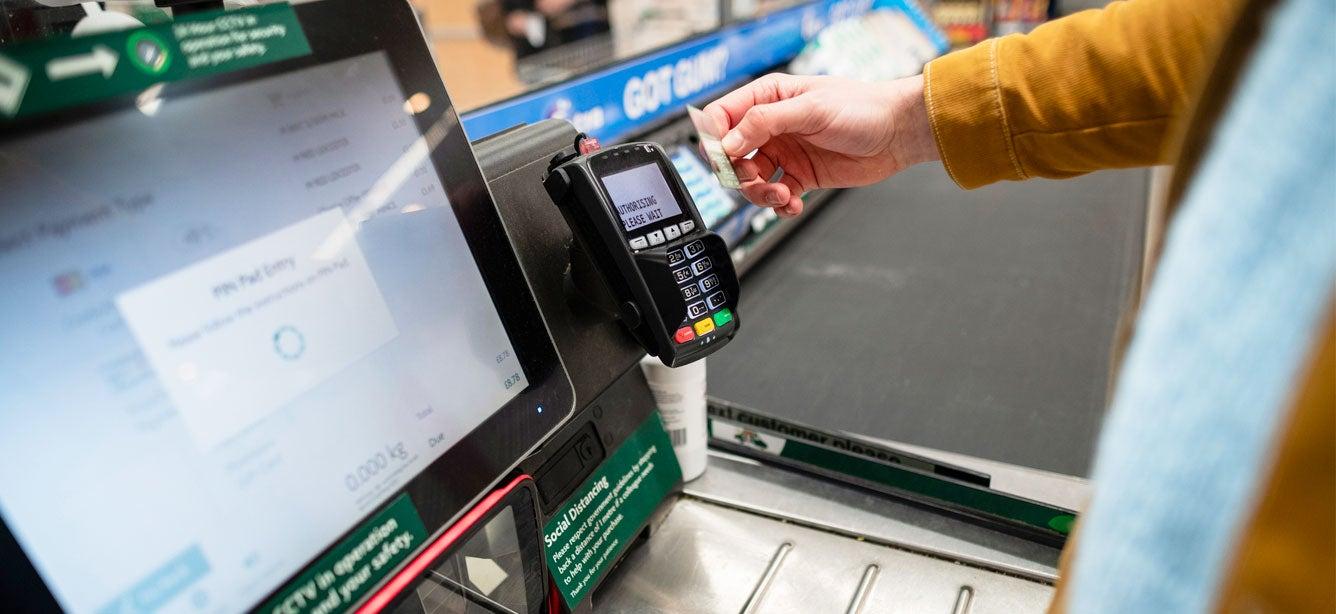
Related Topics
When Mary, 62, recently applied for Supplemental Nutrition Assistance Program (SNAP) benefits, she did so out of desperation.
“My husband and I had no food in the house,” she recalled. “Ironically, even if we could have afforded groceries, which we couldn’t, we then wouldn’t have had the money to fix our car to get to the store.” Upon learning the pair had been denied food stamps because their income was too high, Mary was shocked. “It didn’t make sense,” she said.
Celest, 64, similarly couldn’t understand why her household didn’t qualify for SNAP assistance. “We kept being denied food stamps during the pandemic,” she said, “even though my husband couldn’t run his home business during the shutdown and my daughter had lost her job. My small monthly Social Security benefit wasn’t enough to for us to live on, and I was really worried about how we were going to eat.”
According to Brandy Bauer, former Director of the National Council on Aging (NCOA)’s MIPPA Resource Center, stories like these aren’t that uncommon.
The SNAP application process can be complicated even for the savviest older adults and family caregivers among us,” she explained.
“And the smallest oversight or error can negatively affect your benefits determination,” Bauer said.
This was the case for both Mary and Celest. And that’s why NCOA wants you to know when—and how—you can appeal an unexpected SNAP benefits decision. You can learn more about this process below. But first, it’s helpful to understand some common reasons behind benefits rejections.
Why was my application for food stamps denied?
There are several valid explanations, including:
- Disallowed citizenship status
Only U.S. citizens and certain non-citizens are eligible for SNAP benefits.
- State residency restrictions: You may only apply for SNAP in state where you currently live and you may only collect benefits in one state at a time.
- Excessive income and assets: You must meet specific SNAP income and asset eligibility standards.
- Failure to meet work requirements: Generally, this does not apply if everyone in your household is over the age of 60 and/or lives with a disability. There are work requirements for certain situations, however.
- Incomplete verification: If you fail to include all required documents, your application can be rejected.
When should I file a SNAP appeal?
Usually, your SNAP assistance decision is correct. That said, honest mistakes do happen, and your circumstances can change. Sometimes, your application for food stamps may mistakenly have been denied, reduced, or terminated due to one of these common errors:
- Misunderstanding SNAP eligibility rules
- Miscalculating income and expenses
- Accidentally omitting required information
- Missing a mandatory SNAP interview
Mary, for instance, had counted her household income twice without realizing it. And Celest, wary of scams, didn’t pick up the phone for her SNAP interview appointment. Fortunately, both women reached out to their respective local agencies to ask how to appeal their SNAP benefits decisions. And both were relieved to learn that they did, in fact, qualify for assistance.
If you applied for food stamps in good faith—and if you’re genuinely perplexed by the result—then it’s always a good idea to ask what may have happened. Bauer advised first to enlist your local SNAP agency for help, as Mary and Celest did. In both instances, a caseworker was able to identify and correct the problem before either had to consider filing a formal appeal.
How do I file a SNAP appeal?
If you believe your SNAP application was incorrectly denied, or you’re unhappy with the SNAP benefits you receive, you have the right to an appeals hearing through your state’s Department of Human Services (DHS). In some states, DHS goes by a different name (such as the Department of Social Services or Department of Family Welfare), so be sure to seek out the specific entity that administers SNAP where you live.
“A fair hearing provides the peace of mind of knowing that any decisions that have been or will be made about your application are correct,” said Bauer.
The DHS appeals and hearings process varies by state, but there are some common steps you can take in order to initiate one:
1. On your SNAP verification letter (or other form you may have received describing your SNAP benefits):
- Locate the section titled “I want to appeal”
- Write “I disagree with this decision”
- Sign and date the letter
- Bring or send it to your local SNAP office where you originally applied for benefits
2. Alternately, call your SNAP caseworker directly:
- Let them know you want to file an appeal
- Follow up with a written statement (you don’t need to use an official SNAP appeal form; you can simply type or hand-write a letter)
- E-mail or send it to your caseworker as soon as possible
You should receive a notice from your state within a few weeks that includes further details about your hearing.
Many states maintain strict deadlines around the appeals process; it’s important that you ask about these and adhere to them. And remember: you have the right to ask a trusted friend, family member, social worker, or other advocate to help you file an appeal and to bring them to your hearing, too.
Can I apply for food stamps after being denied?
Yes. There is no prohibition against doing so.
In fact, if you previously have been denied for SNAP benefits but your circumstances have changed, you may reapply as early as the next day. You also may reapply whenever your circumstances change, as often as they change.
Discover additional financial assistance
Did you know there are more than 2,500 programs to help older adults pay for everyday living expenses such as food, medicine, housing and utilities, transportation, and more?
Many of these programs may be available in addition to SNAP. Explore eligibility for yourself or someone else using NCOA’s handy benefits checker.




